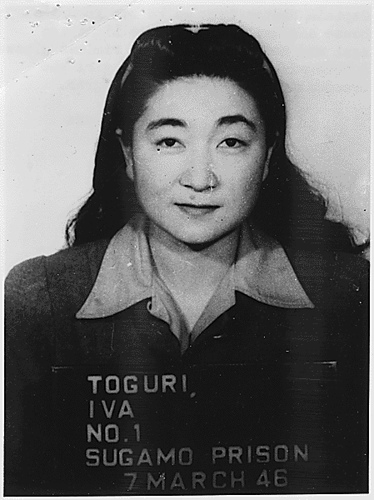August 15, 2010

Emperor Hirohito of Japan gave an
unprecedented radio address at noon 65 years ago today, on August 15, 1945, to announce that Japan would surrender unconditionally to the United States and the allied powers.
The Victory over Japan Day, or VJ Day, officially ended World War II on September 2 1945 when Japan signed the documents of surrender aboard the USS Missouri, and ushered in an era of incredible prosperity for Americans, even though more wars, in Korea, Vietnam, Iraq and now Afghanistan, would prevent peace in the decades to come.
The end of WWII is justly celebrated as the close to a violent, though heroic, chapter in our history. But our perspective often blocks empathy for the perspective of the vanquished, as with our ignorance of August 6 and 9, 1945, the
anniversary of the atomic bombs dropped on Hiroshima and Nagasaki that led to the August 15 announcement by Emperor Hirohito urging Japanese to "bear the unbearable" and accept the country's surrender.
Except for the elderly veterans and American civilians who served in the Occupation Forces under General Douglas MacArthur, there isn't much awareness of what Japan was like in the months and years after the war. The Occupation lasted until 1952, thr brink of the Koraen war.
But, I would guess that many Americans don't have any awareness of Japan until the 1964 Olympics, which were held in Tokyo, and which heralded the arrival of Japan as a world power that, by the 1980s, rivaled the U.S. economy.
That's why I'm so fascinated by the postwar era in Japan -- it's a hazy, forgotten time. I was born during that era, in Tokyo in 1957, and lived in two worlds -- attending school on U.S. military bases and living in Japanese civilian neighborhoods until the mid-1960s, when my family moved Stateside.
For Japanese, the end of the war is remembered vividly for the atomic bombings and the utter poverty the country was left in by its military leadership. Even before the atomic bombs, its majors cities had been firebombed for months by U.S. bombers. In one night of bombings in Tokyo, almost as many people were killed as by the atomic bomb on Hiroshima, and great swaths of Tokyo had been leveled.
It's hard to imagine the scale of death and destruction that modern warfare can inflict on a country and its people. That's why, in spite of a stubborn nationalistic streak that leads to some Japanese still thinking like the country did in the 1930s and '40s, and claiming atrocities such as the Nanjing Massacre (where hundreds of thousands of civilians were reportedly murdered by invading Japanese troops) never happened, most Japanese are strongly anti-war and against nuclear weapons. They don't want the world to forget.
But there's a forgotten history, even for the Japanese.




 President Obama today signed legislation at a White House ceremony to collectively award the soldiers of the
President Obama today signed legislation at a White House ceremony to collectively award the soldiers of the  Emperor Hirohito of Japan gave an
Emperor Hirohito of Japan gave an 
